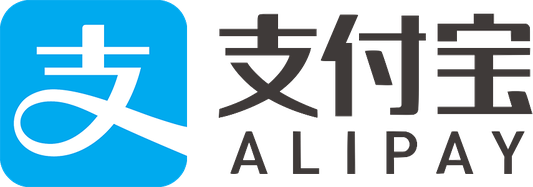
We help businesses accept payments online.
Shopify is an all-in-one platform that lets anyone create and run their own online store—no coding required. With over 38,000 active stores in Japan, it’s become a popular choice for everyone, from indie streetwear brands to global retailers. For many of these businesses, a Shopify integration is the first step toward entering Japan’s highly localized eCommerce market.
But building a well-designed storefront is only the beginning. The real test comes at checkout, where local payment expectations are high. Credit cards are still widely used in Japan, but mobile wallets like PayPay and Rakuten Pay are quickly gaining traction, especially among younger shoppers. As of 2025, Japan’s mobile payments market is valued at approximately ¥39 trillion (USD 280 billion) and is projected to reach ¥150 trillion (USD 1.07 trillion) by 2030.
To succeed, your Shopify integration needs to support more than language and yen pricing—it has to reflect how local customers actually pay. That’s where KOMOJU fits in. It allows you to easily add payment methods like carrier billing and mobile wallets—no custom development required. The result is a checkout experience that meets expectations and builds trust.
KOMOJU also supports South Korea, enabling Korean local payment options like Naver Pay and Kakao Pay. In this article, we’ll look at Shopify in Japan and how KOMOJU helps Shopify merchants reduce drop-off and convert more customers in East Asia.
Shopify in Japan
Shopify has become a go-to platform for Japanese businesses that want more flexibility and control than domestic services typically offer. While other Japanese platforms like BASE and STORES.jp focus on ultra-simplified shop setups, Shopify appeals to merchants looking to grow a full-fledged, branded online presence, especially in the direct-to-consumer (D2C) space.
Japan’s eCommerce environment is increasingly mobile-first, and Shopify’s responsive design and mobile-optimized checkout flow align well with local shopping habits. Many Japanese consumers browse and buy on smartphones, and Shopify’s storefronts adjust seamlessly across devices without additional development.
Localization is also a key part of Shopify’s traction in Japan. The platform supports Japanese language content, yen-based pricing, and .jp domains. It also integrates with domestic shipping providers and tax configurations, making it easier for merchants to meet local expectations without rebuilding the entire experience from scratch.
For global brands entering the Japanese market, Shopify offers a way to launch a localized storefront quickly while still tying back into their global backend. For Japanese SMEs, it’s a scalable platform that doesn’t lock them into a simplified toolset as they grow.
Several well-known brands have adopted Shopify for their online stores in Japan, including:
- ISSEY MIYAKE: The renowned fashion brand utilizes Shopify for its online presence.
- Human Made: A streetwear label founded by NIGO, operating its eCommerce store on Shopify.
- Francfranc: A popular home furnishings retailer leveraging Shopify for its online sales.
- ARC’TERYX Japan: The outdoor apparel brand uses Shopify for its Japanese eCommerce operations.
- Japanese Taste: An online store powered by Shopify that offers a variety of Japanese products with global shipping.
Why Shopify Works for Entering Japan
Entering Japan or South Korea means adapting to a new language, payment culture, tax environment, and consumer behavior. Shopify lowers the barrier to entry by offering a flexible, globally supported platform that helps brands localize without rebuilding from scratch.
Here are seven key features that make Shopify a practical choice:
Multi-Currency and Multilingual Capabilities
Shopify supports multiple languages and currencies, allowing merchants to tailor storefronts to the needs of Japanese and Korean shoppers. In Japan, this includes displaying prices in yen and offering a fully Japanese-language interface. In Korea, stores can operate in won with full Korean-language support. These features help build immediate trust and reduce friction during checkout.
Local Logistics, Tax, and Shipping Services
Merchants can configure Shopify to reflect Japan’s consumption tax rules, display tax-inclusive pricing, and integrate with third-party shipping apps that work with Japanese and Korean delivery providers. While Shopify Shipping isn’t available in Japan, many merchants use local tools like Yamato and Sagawa integrations to automate fulfillment and labeling.
Built-In SEO and Local Domain Support
Shopify makes it easy to use local domains like .jp or .kr, which can improve visibility in domestic search engines (e.g., Google Japan, Yahoo Japan, Naver). Combined with editable SEO settings—such as meta titles and descriptions—this helps new merchants rank higher in local searches and attract organic traffic from local customers.
Mobile-Optimized Storefronts
By some estimates, 71% of Japanese consumers shop online via smartphone, making mobile responsiveness non-negotiable. With over 97 million smartphone users in a country of 124 million, Japan ranks among the world’s most mobile-connected markets. A store that doesn’t perform well on mobile isn’t just inconvenient—it’s losing sales.
Shopify themes are built to be mobile-first, ensuring fast load times, optimized layouts, and easy navigation across devices. This improves the user experience and reduces bounce rates, which is especially critical in Japan’s mobile-driven market.
Developer Flexibility and API Support
Shopify offers extensive developer documentation and robust API access, giving merchants the flexibility to connect their stores to local systems beyond the App Store. In Japan, this is especially useful for businesses that need to integrate with accounting software like Yayoi, custom loyalty programs, or legacy ERPs. These tools allow larger or more complex operations to build workflows that match their existing business logic, without leaving the Shopify ecosystem.
Local Partner and Shopify Expert Network
Shopify maintains a network of certified Japanese development partners and Shopify Experts who specialize in localization, logistics, and compliance. These partners can help merchants adapt their storefronts to Japanese user expectations, implement country-specific UX/UI best practices, and integrate local tools, without requiring in-house developers. This partner ecosystem is especially valuable for overseas brands entering Japan for the first time.
Tools for Legal and Regulatory Compliance
Japan’s eCommerce market includes strict rules around taxation, invoicing, and customer transparency, and Shopify helps merchants stay compliant from the start. By law, product prices must include consumption tax, and Shopify supports this with a setting that automatically displays tax-inclusive pricing.
Invoicing requirements also tightened with the introduction of the Qualified Invoice System, officially implemented in October 2023. This system requires specific invoice formatting for businesses to claim input tax credits.
While Japan doesn’t have a universal return law, consumers expect clear and reasonable return policies. Shopify’s admin tools let merchants define return windows, restocking fees, and automated workflows to manage returns.
Paired with KOMOJU, whose infrastructure already aligns with local billing and payment regulations, this setup ensures merchants meet both customer expectations and legal obligations with minimal friction.
Shopify Case Studies in Japan
Shopify’s flexibility and localization options have made it a go-to platform for a growing number of Japanese brands, both heritage companies and modern D2C startups.
From unifying online and offline sales to navigating international logistics and scaling customer experiences, these case studies highlight how businesses in Japan are using Shopify to meet real-world challenges and drive growth. These stories show what’s possible when local needs meet global eCommerce tools.
Tokyobike
Founded in Tokyo’s Yanaka district, Tokyobike is a boutique bicycle brand known for its minimalist design and urban mobility focus. While initially hesitant to embrace eCommerce due to its high-touch customer service model, the brand launched a Shopify-powered online store in 2019. Within six months, online sales surpassed those from physical stores. However, using Lightspeed for in-person sales and Shopify for online orders created inventory disconnects and customer service inefficiencies.
By switching to Shopify POS, Tokyobike unified its operations, resulting in 2x more online sales from in-store pickup, a shortened sales cycle from 30 days to under one week, and real-time inventory visibility across locations.
The move not only simplified logistics for staff but also improved the customer experience, for seamless online-to-offline purchases and in-store upselling.
Soup Stock Tokyo
Soup Stock Tokyo, a nationwide soup chain known for its health-conscious menu, revamped its eCommerce platform in April 2022 using Shopify Plus to unify its physical and online sales. Previously limited by separate systems, the brand faced issues with fragmented customer accounts and cumbersome management of personalized gift orders.
Shopify Plus solved these challenges by enabling single sign-on, seamless point integration, and customized features like the popular “Selectable Soup Set” interface and name-engraved gift wrapping. As a result, the company reduced support costs, improved user experience, and laid the groundwork for future expansion into social gifting and B2B sales—all while preserving the brand’s high-touch service online.
Bento&co
Founded in Kyoto in 2008 by French expats, Bento&co sells Japanese bento boxes and accessories to a global audience. Originally targeting overseas customers interested in Japanese culture, the business uses Shopify to manage its multilingual, cross-border online store.
What makes Bento&co particularly relevant to other merchants is how it tackled international logistics: facing challenges with overseas shipping, the founder created a shipping management tool—Ship&co—that integrates with Shopify and streamlines fulfillment for global orders. For merchants, Bento&co spotlights how niche products, when paired with the right platform and shipping tools, can successfully scale to international markets even from a small local base.
Kanro
Kanro, a Japanese candy manufacturer with over 110 years of history, launched its D2C site “Kanro POCKeT” on Shopify Plus in 2021. This move was prompted by the temporary closure of their Tokyo Station store during the COVID-19 pandemic.
The new platform integrates features like LINE-based single sign-on, back-in-stock notifications, and Shopify POS Pro for unified inventory and customer data management. As a result, Kanro achieved a 175% year-over-year increase in total sales and a 1.3x boost in repeat purchase rates.
Francfranc
Francfranc, a major Japanese interior design brand with over 140 domestic stores and a growing presence in Hong Kong, migrated to Shopify in 2019 to address infrastructure risks, streamline operations, and gain flexibility in managing its extensive product lineup.
Previously reliant on outsourced development and struggling with server downtime and complex shipping workflows, Francfranc found Shopify’s robust hosting and flexible admin tools essential for scaling. Between 2018 and 2022, Francfranc more than doubled its online sales, saw a big jump in search traffic, and turned more visitors into customers.
Key features like LINE single sign-on, an intuitive CMS for non-tech staff, and integrated reward point systems helped the company personalize the user experience and boost retention. With Shopify Plus, Francfranc also launched an international store in Hong Kong without the overhead of a separate platform, demonstrating how Shopify helps Japanese retailers to expand both domestically and abroad.
How KOMOJU Works Together With Shopify
Shopify is powerful, but it doesn’t support many of the payment methods that consumers in Japan and South Korea expect. KOMOJU bridges that gap, without needing custom development.
Over 16,000 businesses, including Steam and Francfranc, use KOMOJU to process payments in Japan. These integrations allow users to check out using payment methods they already trust, improving completion rates and reducing cart abandonment.
What KOMOJU Offers
Here are just some of the features merchants receive when choosing KOMOJU.
Fast Integration with Shopify and Other Platforms
KOMOJU provides a direct plugin for Shopify. You activate it from your admin dashboard by entering your merchant credentials—no code required. In most cases, merchants can be live in 3 simple steps.
Broad Payment Method Coverage
KOMOJU supports Japanese and Korean payment methods where the merchants select which payment methods to enable from a single dashboard. All payments are routed through one integration, making it easier to manage multiple regions without juggling separate systems.
Responsive Merchant Support
Merchants receive hands-on help from KOMOJU’s team during onboarding and after launch in English as well as extensive FAQ to assist in integration, testing, and platform settings.
Built-In Compliance and Security
KOMOJU meets PCI-DSS standards and supports security features like 3D Secure. It also handles region-specific legal requirements, such as tax documentation and payment processing protocols that vary between Japan and Korea.
Simplified Operational Overhead
From refunds and chargebacks to currency conversion, KOMOJU manages the backend processes. Merchants don’t need separate tools for settlement or customer service workflows—everything is accessible through one dashboard, with unified reporting and payouts.
Summary
Entering the markets in Japan and South Korea requires more than just launching a Shopify store—it means adapting to the way local customers shop and pay. Shopify provides the flexibility, localization features, and infrastructure needed to build and scale an online store that works in East Asia. But on its own, it doesn’t support the payment methods many shoppers expect.
That’s where KOMOJU shines. As one of the most widely used payment gateways for Shopify in Japan, KOMOJU allows merchants to accept trusted local preferences.
It also supports leading payment methods in South Korea. For merchants expanding beyond East Asia, KOMOJU offers coverage across China and other APAC regions, including Alipay, WeChat Pay, and cross-border credit card support. This makes it a scalable solution for international growth.
By combining Shopify’s global eCommerce capabilities with KOMOJU’s local payment support, merchants can reduce checkout friction, meet compliance requirements, and build trust from the first visit to the final transaction. It’s a solution that’s already working for brands like Steam, Francfranc, and Daniel Wellington—and it’s available to any business ready to grow in Japan or Korea.
FAQ
KOMOJU is a direct plugin for Shopify and can be connected through Shopify’s admin panel by selecting it under “Alternative payment methods.” After activating your KOMOJU account, you can connect your Shopify account to KOMOJU to start accepting local payment methods like Konbini payment, PayPay, and carrier billing—all without writing custom code. For more information, read getting started with KOMOJU.
In Japan, Shopify Payments supports major credit cards like Visa, Mastercard, American Express, and JCB. It also accepts payments from Apple Pay, Google Pay, and PayPal. These options cover a portion of Japanese consumer preferences; however, Shopify doesn’t natively support popular local payment methods such as PayPay, Rakuten Pay, or bank transfers (Pay-easy). To offer these, merchants typically integrate with a third-party provider like KOMOJU.
KOMOJU complements Shopify by offering the full range of payment methods that Japanese shoppers expect, all through one integration. This ensures a smoother checkout experience and reduces cart abandonment caused by missing payment options.
Online shoppers in Japan use a wide range of payment methods, including Konbini payments, PayPay, Rakuten Pay, and bank transfers. Many of these are unique to the region and aren’t covered by most global payment systems.
Without KOMOJU, it’s difficult to offer these methods without piecing together multiple providers or handling local regulations on your own. KOMOJU is built for the Japanese market, managing compliance and secure transaction handling so that you can focus on sales instead of infrastructure.

We help businesses accept payments online.


















